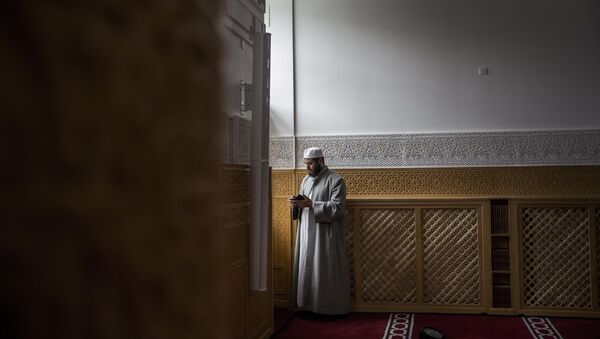As Denmark has cracked down on imams who propagate Sharia divorce documents, Iranian Ambassador Afsaneh Nadipour has been summoned to the Danish Foreign Ministry to explain reports that point at the Iranian Embassy's involvement in cases regarding religious divorces.
"Naturally, we will in no shape or form accept an embassy being involved in cases that go against Danish law – and our basic democratic values in Denmark", Foreign Minister Jeppe Kofod told the newspaper Jyllands-Posten. "This form of religious control does not belong in Denmark", he added.
"Reports that the Iranian Embassy has in an unsolicited fashion sought out women living here to pressure them into getting their Danish divorce papers religiously validated is something I take very seriously", Kofod said.
Reports of Muslim women living in Denmark being forced to accept divorce contracts made in accordance with Sharia law have been making headlines in the Danish media over the past month. In September, an Odense-based imam was reported to the police over a Sharia Law contract stipulating that a woman would lose her parental rights if she chose to remarry or behave in a way that "violates her own or her family's honour".
To nip the instances of Sharia law in the bud, the Danish government aims to crack down on the practice by seeking up to three years' jail time for the imams involved.
More specifically, the Danish government intends to put forward a law that would expand the punishment for "psychological violence" to include negative social control (which includes Sharia divorce contracts). The law will also include a framework that punishes family members engaging in negative social control.
"When we see imams getting involved in divorce cases in such a negative way, we need to take this more seriously. And I think a change of the law can help do that, because we cannot give imams a pass to meddle in divorces in a way that casts aside Danish law", Immigration Minister Mattias Tesfaye told the newspaper Berlingske newspaper.
While several parties, including the left-wing Red-Green alliance and the liberal-conservative Venstre are prepared to support the new bill, it has also faced opposition. Among others, from the Council of Ethnic Minorities (REM).
Its spokeswoman Halima El Abassi contended that stiffer punishment would only push those involved further into darkness and suggest the idea that Danish politicians are going after Muslims only. According to El Abbasi, Danish society must ensure that there is an alternative to Sharia contracts.
While Prime Minister Mette Frederiksen in late September issued a stern condemnation, stressing that Sharia is "wrong", "not Danish", and "doesn't belong in Denmark", many Danish Muslims appear to think otherwise. According to previous surveys, four out of ten Danish Muslims would like to have laws at least partly based on Sharia law, whereas over 10 percent even said the nation's laws should be based on Sharia alone. A more recent report by the Danish Justice Ministry found that nearly eight out of ten Danish Muslims would like to make criticism of Islam illegal, as opposed to merely 18 percent of the general population.
Islam is Denmark's largest minority religion at over 300,000 Muslims, or 5.4 percent of the total population.
This is not Denmark's first altercation with Iran either. In 2018, Denmark summoned the Iranian ambassador following claims by the Danish Security and Intelligence Service (PET) that Iran was involved in an assassination on Danish territory. Iran denied any involvement.


